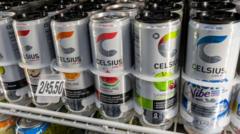The US FDA has warned the public against consuming specific shrimp products from Walmart after the detection of radioactive material in a shipment. The company has taken steps to remove the affected items from its shelves and is cooperating with suppliers for further investigations.
Walmart Issues Recall of Potentially Radioactive Shrimp Products

Walmart Issues Recall of Potentially Radioactive Shrimp Products
A recall has been initiated for shrimp sold under Walmart’s Great Value label due to contamination concerns involving Caesium-137.
Walmart has announced a recall of certain shrimp products sold under its Great Value label in the United States after the FDA detected radioactive material in a shipment of frozen seafood. Concerns arose after one sample of breaded shrimp tested positive for Caesium-137, the radioactive isotope, although officials noted that this particular sample did not enter the market.
The FDA has advised consumers across 13 states—including Alabama, Florida, and Texas—not to eat any shrimp from three specific batches and to dispose of any affected products purchased recently. The retailer has assured customers that their health and safety is paramount, with a Walmart spokesperson confirming that the company has initiated a sales ban on the implicated products and is working closely with suppliers to investigate the matter.
The shrimp in question was sourced from an Indonesian supplier, which has since encountered issues with several shipping containers being denied entry into the United States. The FDA indicated that the quantity of Caesium-137 found in the tested shipment was insufficient for immediate harm; however, prolonged exposure could present a higher risk of cancer due to damage to human cells.
Caesium-137, produced via nuclear reactions, can be found in trace amounts across the planet, including in soil and food. It became notorious as one of the major sources of radiation following disasters at Chernobyl and Fukushima. While the FDA has stated that no other shrimp products tested showed signs of contamination, they have also emphasized that this does not entirely eliminate the possibility of further issues.
















